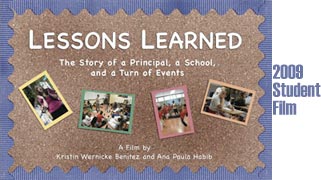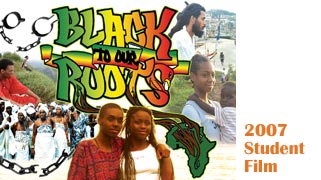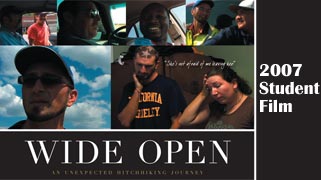Top Ten Tips: Shooting in another Country

Portions of Black to Our Roots were taped in Ghana. Tre Whitlow and Jacqueline Olive share their top ten tips for shooting overseas.
10. Make sure that you are rested, eat light, and are healthy on the plane ride over because you need stamina from the moment you board the plane to last you through the jet lag, disorientation of new surroundings, and sickness that can affect you when eating and drinking things from another country.
9. Take your time getting your body used to the environment. Don’t rush to try new foods, especially heavy foods and oily foods. Eat fruit, rice, and vegetables and slowly ease your body into the other cultural dishes.
8. Look to the places where people congregate to find the smaller aspects of culture that could be interesting to capture (i.e. – eating spots, worship locations, family/community gathering places, etc.).
7. It helped to pause and take in the surroundings before we started shooting for the first couple of days because the imagery in Africa was so much more intense than we was used to. The colors and action, for example, were much more vibrant.
6. Be very observant of the local culture in terms so that you don’t draw unwanted attention to yourself. We know as filmmakers we want to film everything, but be slow to just put cameras in people’s faces. Take your time.
5. Make sure you take all of the equipment that you need because there is nowhere to buy things like mini DV tapes.
4. Whenever possible, try to learn at least a few words of the local language. It will go a long way in terms of showing the people that you respect and are trying to relate to them on their terms. This may open up film opportunities that you least imagined.
3. On the flight over and back, keep your camera in your hands, if possible. Definitely don’t check it, and your camera can also be damaged when stowing it in the overhead rack.
2. Often we checked out how we interpreted what was shot, like scenes in a church or at a funeral, with Ghanaians to make sure the interpretation of what was going on was accurate. Cultural differences can make you misperceive what’s in front of you. We learned a lot more that way about the specifics of Ghanaian culture and met a lot of interesting people.
1. Try to put yourself in the minds of your audience as if they were experiencing your experience. In other minds, look for the visual and emotional things that others would want to see and experience. Don’t just film what is interesting to you.
Student Resources
Student News
- Work in Progress: The Man Behind the Curtain
- Fall 2008 Class Schedule
- Top Ten Tips: Shooting in another Country
- Top Ten Tips: Working with Child Subjects
- Meet Sarah Zaman
- The Film Festival Circuit
- Student Reaction to Workshops with Peter Gilbert
- Liz's Adventures in Guyana
- Peter Gilbert to visit the Institute
- Meet the Class of 2008











